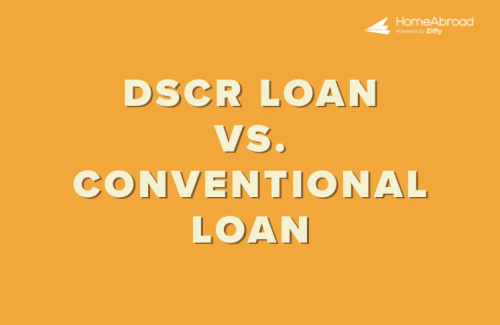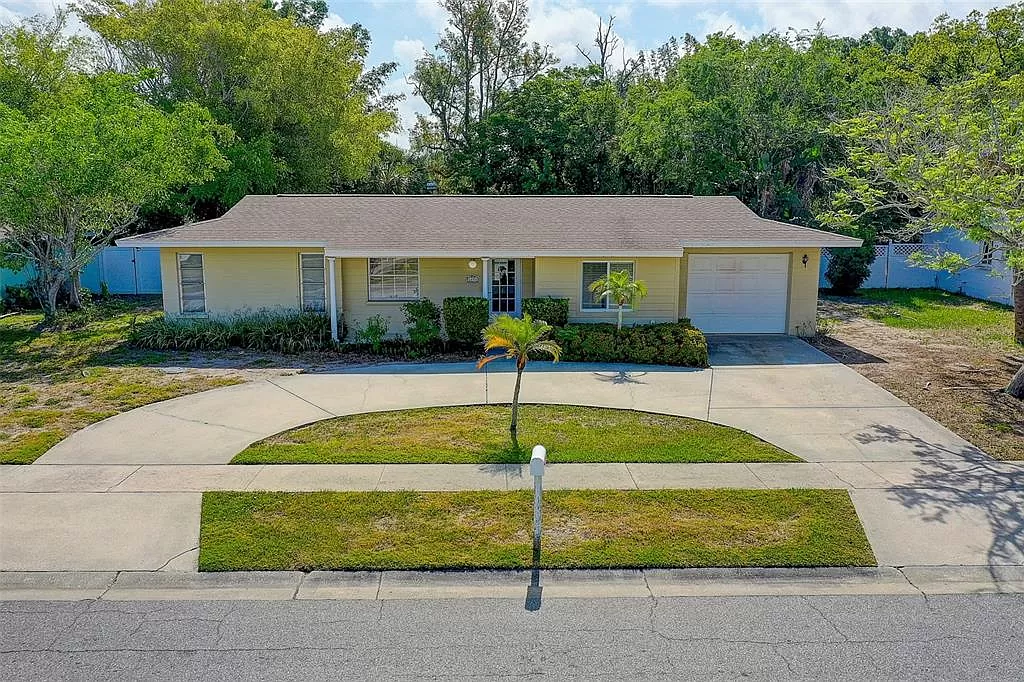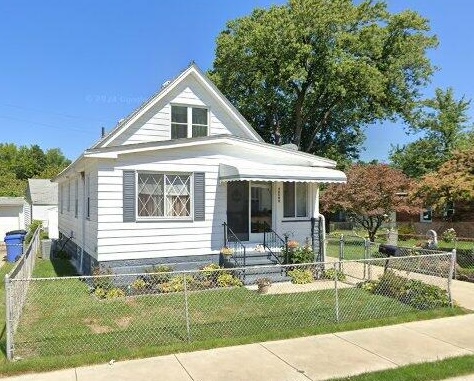Editorial Integrity
Making informed real estate decisions starts with having the right knowledge. At HomeAbroad, we offer US mortgage products for foreign nationals & investors and have a network of 500+ expert HomeAbroad real estate agents to provide the expertise you need. Our content is written by licensed mortgage experts and seasoned real estate agents who share insights from their experience, helping thousands like you. Our strict editorial process ensures you receive reliable and accurate information.
Key Takeaways:
1. Foreign nationals rarely qualify for conventional loans because they require US credit history, tax returns, and domestic income verification.
2. DSCR loans allow international real estate investors to qualify based on the property's rental income instead of their personal income.
3. DSCR lending supports flexible documentation, remote closing, and LLC ownership, which makes it a practical option for non US residents building a rental portfolio.
4. DSCR loans help foreign nationals buy multiple investment properties without the strict personal financial requirements seen in conventional mortgages.
5. HomeAbroad is a one-stop shop that makes the entire process simple for international real estate investors, helping you find properties using our AI-driven investment property platform, get mortgages, set up a US-based LLC, open a local bank account, and handle paperwork required for closing.
Table of Contents
Foreign nationals often arrive in the US real estate market with strong financial backgrounds. However, once they begin the mortgage process, they realize that conventional mortgages are designed for people who live and earn in the US. These loans rely on domestic credit history, US tax returns, and income from a US employer, which most international buyers do not have.
HomeAbroad DSCR loans take a different approach. We qualify you by looking at the property’s rental income, instead of your personal income. This makes it possible for foreign nationals living abroad to finance rental homes in the US without building a US financial profile.
Who Conventional Loans Are Actually For
Before comparing DSCR and conventional loans, it helps to understand who conventional mortgages are built for. These programs are created for borrowers who already have a full financial footprint in the US.
Conventional loans work best for:
If you do not meet these conditions, a conventional loan will not work, even if you have strong income and assets abroad. This is why DSCR loans exist and why they have become the primary mortgage option for foreign nationals who want to buy rental properties in the US.
DSCR Loan Vs. Conventional Loan
Here is a simple comparison to show how DSCR loans work differently from conventional loans for foreign nationals.
DSCR Loan | Conventional Loan |
|---|---|
No DTI restrictions | DTI requirement of 45% |
Higher interest rates | Lower interest rates |
Easier to qualify | Strict qualifications |
Higher Down Payment | Lower Down Payment |
No PMI Premiums | PMI premiums are required |
Easy Cash Flow | Larger operating expenses |
Best for Investment Properties | Best for Residential Purchase |
Finance Multiple Properties | Limited to one property |
No Income Verification | Need to provide Income Documentation |
Flexible Repayment Terms | Rigid Repayment Terms |
Cannot use for Financing Residential Property | Fewer restrictions on the usage of funds |
Quick approval process | Long approval process |
No employment verification | Employment verification check and pay slips are required |
Which Loan is Best for International Real Estate Investors?
The difference between DSCR and conventional loans is not just about interest rates or paperwork. These two loan types serve two different borrowers. Conventional loans focus on the individual. DSCR loans focus on the investment.
Below is what each difference actually means for a foreign national investing from abroad. Let us see how DSCR loans and conventional loans compare:
1. How Approval Works
Conventional lenders begin by evaluating the borrower’s personal finances. They want to see your US tax returns, domestic pay stubs, employer information, and a full US credit history. Without these, the loan cannot move forward. Most foreign nationals living abroad cannot meet these requirements.
HomeAbroad DSCR loans review the property’s rental income first. If the rental income can cover mortgage payment, you can qualify even without US credit or US income. This shift makes financing possible for international real estate investors who have strong financial profiles but do not fit conventional guidelines.
2. How Income is Reviewed
Conventional loans require documented US income. Lenders want W2s, tax returns, and employer verification. This makes the process inaccessible to foreign nationals who earn abroad.
DSCR loans do not review personal income. We qualify you by looking at the property’s rental income. This is the single biggest reason DSCR loans work so well for foreign nationals.
3. Credit Requirements
Conventional loans rely on a FICO score. You can only build this score through US-based borrowing. Even if you have excellent credit in your home country, conventional lenders cannot use those records for approval.
HomeAbroad DSCR loans do not require a US credit score. Some lenders may review international credit references, but a domestic credit file is not needed. This gives foreign nationals a clear way to finance property even if they are buying for the first time.
4. Down Payment
Conventional loans sometimes allow lower down payments, but those programs are meant for domestic borrowers with strong US credit and income. Foreign nationals living abroad do not qualify for these programs.
HomeAbroad DSCR loans typically require 20 to 30 percent down. This range is standard for international buyers and aligns with global investment norms. A solid down payment also leads to smoother approvals and stronger loan terms.
5. Documentation and Paperwork
Conventional loans require a long list of documents that foreign nationals cannot provide. This includes tax transcripts, employer letters, domestic bank statements, and US credit histories.
HomeAbroad DSCR loans use a simple and realistic documentation process that foreign nationals can complete easily. The streamlined structure is one of the main reasons DSCR loans are the most viable option for overseas investors.
6. Timeline and Closing Speed
Conventional loans can take longer because lenders must verify employment, income, and credit records within the US. When the borrower lives abroad, these verification steps can create additional delays.
HomeAbroad DSCR loans move faster because the decision relies on property performance and proof of funds. Many international real estate investors close their loans within 30 days. This speed is especially useful in competitive rental markets.
7. Ownership Through an LLC
Most conventional lenders require buyers to hold the property in their personal name. This is not ideal for many foreign nationals who prefer the privacy and protection offered by LLC ownership.
HomeAbroad DSCR loans allow buyers to finance the property under a US-based LLC. This makes it easier for foreign nationals to structure their portfolio cleanly and manage their investments over time.
8. Portfolio Growth and Long Term Investing
Conventional loans often limit how many financed properties a borrower can have and apply strict DTI caps, making it harder to scale.
DSCR loans allow each property to qualify on its own. If the rental income supports the mortgage, you can keep expanding your portfolio. This is a major advantage for foreign nationals who want to build long-term rental income across different US states.
DSCR loans are only available for commercial and investment properties. They are not used to finance residential property.
Why DSCR Loans Are a Practical Option for Most Foreign Nationals?
For foreign nationals living abroad, the biggest financing challenge is not affordability. It is the lack of US-based financial documentation required by conventional lenders. DSCR loans remove that problem by basing the loan entirely on the property’s rental income instead of personal paperwork.
This allows foreign nationals to:
DSCR loans align with how global investors operate. Instead of asking you to match a domestic borrower profile, the loan is designed around the performance of the asset you are buying.

Pre-qualify for a DSCR Loan in a Few Clicks.
No Paystubs, W2s, or Tax Returns Required.
DSCR Loans vs. Conventional Loans: Choosing the Right Path for Your Real Estate Journey
Foreign nationals face a unique set of challenges when trying to finance US real estate through traditional lenders. Conventional loans are built for domestic borrowers with US credit, US tax returns, and local employment. For international investors, these requirements are unrealistic.
HomeAbroad DSCR loans offer a clear and workable solution by focusing on the property’s rental income instead of your personal financial information. With flexible documentation, LLC-friendly options, remote closings, and room to scale your portfolio, DSCR loans remain the strongest financing path for foreign nationals buying rental homes in the United States.
FAQs
Can a foreign national living abroad get a conventional loan?
No. Conventional loans require US credit, income, and tax returns. Only foreign nationals who live in the US on eligible visas and have full domestic financial documentation can qualify.
Can I buy under a US LLC?
Yes. HomeAbroad DSCR loans allow LLC ownership.
Do banks offer DSCR loans?
No, banks do not typically offer DSCR loans. Instead, they usually specialise in conventional loans that require a higher credit score and personal income.
If you’re interested in a DSCR loan, you can connect with HomeAbroad and quickly get started through our network of DSCR lenders.
What credit score do you need to get a DSCR loan?
International real estate investors typically do not require an established US credit score to qualify for DSCR loans, making it easier to expand their real estate investment portfolios with greater flexibility.
Can a first-time investor get a DSCR loan?
Yes, a first-time investor can get a DSCR loan. However, the loan is available to all individuals regardless of experience in real estate investing.
Is cash-out refinancing available for DSCR loans?
Yes, HomeAbroad offers cash-out refinancing options for DSCR loans, allowing foreign investors to extract equity from their properties for further investments or renovations.










![DSCR Loans Guide for Foreign Nationals: What It Is & How to Apply in [2026]](https://homeabroadinc.com/wp-content/uploads/2022/06/dscr-loan-guide-FN.png)
![DSCR Calculator [2026]: Calculate Your DSCR](https://homeabroadinc.com/wp-content/uploads/2023/04/DSCRcalculator.jpg)













